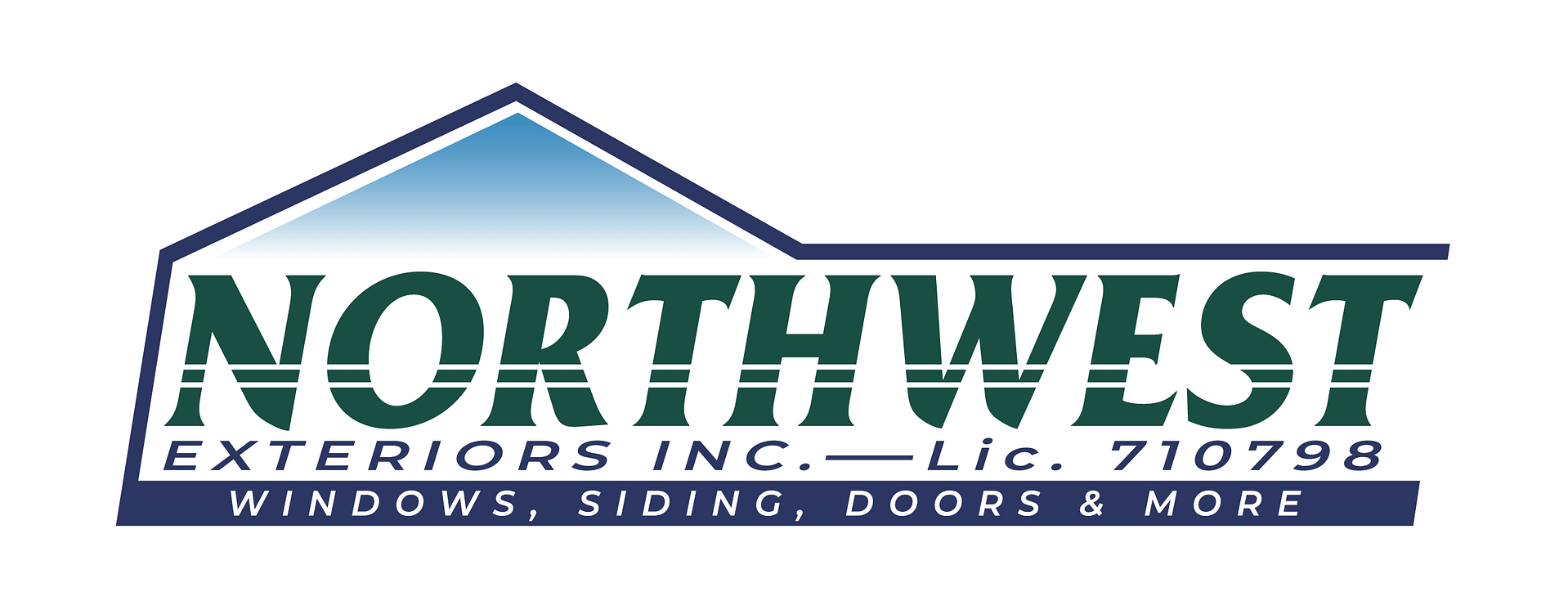
If you work out regularly and eat a healthy diet, then you already understand the importance of maintenance. Doing these things helps you stay fit and free of physical issues. It’s the same story for the major systems of your home, including your air conditioning unit. Partnering with a professional HVAC firm near you to perform basic inspections and maintenance on a set schedule not only saves on repair costs but prolongs the life of your system.
Keeping your air conditioning system in top shape is essential for comfort, yet many homeowners overlook routine upkeep. Consistent air conditioner maintenance can prevent costly repairs and ensure efficiency. This article will cover the importance of scheduling seasonal air conditioning maintenance, key components to inspect, and tips for choosing the right HVAC service provider. By understanding these aspects, homeowners can reduce the risk of unexpected issues, such as needing emergency AC repair near me, while maximizing the performance of their system, including critical parts like the heat exchanger.
Understanding Seasonal Air Conditioning Upkeep
Regular maintenance is vital for air conditioning systems to preserve optimal efficiency and prevent issues such as water damage and leaks. Neglect can lead to common problems that compromise performance and comfort. Homeowners should be aware of signs indicating their cooling system requires attention, including the need for air duct cleaning or emergency ac repair. Understanding these factors aids in maintaining a reliable and effective system.
Importance of Regular Maintenance
Regular maintenance of air conditioning systems plays a significant role in facilitating optimal efficiency. For instance, cleaning the condenser unit and making sure the air duct system is free of blockages can lead to better airflow and improved cooling performance. Homeowners should pay attention to thermostat calibration as well, as inaccuracies can lead to unnecessary energy consumption and discomfort within the home.
Seasonal upkeep not only enhances performance but also extends the lifespan of the heating and cooling units. Periodic checks on critical components like the furnace and ductwork help identify potential issues before they escalate into costly repairs. By proactively addressing these elements, homeowners can maintain a comfortable indoor environment and minimize unexpected breakdowns:
Common Problems Caused by Neglect
Neglecting air conditioning maintenance can result in several common problems that hinder system efficiency and comfort. For example, if the evaporator coil becomes dirty, it can limit heat absorption, causing the system to work harder than necessary. This not only leads to higher energy bills but can also increase carbon emissions, which has a negative impact on the climate.
Without regular servicing, essential components may fail, resulting in costly repairs or replacements. HVAC contractors often find systems with blocked air ducts, leading to poor airflow and uneven cooling throughout the home. Addressing these issues through seasonal maintenance helps deliver reliable operation and prolongs the lifespan of the cooling system:
Signs That Your System Needs Attention
Homeowners should remain vigilant for signs that their HVAC system requires attention. One common indicator is a clogged air filter, which can lead to reduced airflow and increased wear on the system. If the air conditioning unit is making unusual noises or if the indoor temperature does not match the thermostat setting, it is advisable to schedule service to address these issues promptly.
Another red flag is inconsistent cooling throughout the home. If certain rooms feel warmer than others, it may indicate problems within the ductwork or the system itself. Homeowners should not overlook any unusual spikes in energy bills, as these can signal that the HVAC system is working harder than necessary due to neglect or malfunction. Regular maintenance can help identify and mitigate these problems early, maintaining optimal efficiency.
Scheduling Seasonal Air Conditioning Maintenance
Key times for seasonal air conditioning checks are essential to secure optimal performance. Creating a maintenance calendar helps track important tasks such as replacing air filters and inspecting electrical wiring for wear and tear. Additionally, factors affecting scheduling, including the unit’s combustion system and specific needs of commercial air conditioning, should not be overlooked. These considerations aid in maintaining reliability and efficiency.
Key Times for Seasonal Checks
Scheduling seasonal checks for HVAC systems is essential for maintaining optimal efficiency. Homeowners should prioritize HVAC maintenance before the summer heat arrives, making sure that inspections are conducted to assess the status of components like heat pumps and condensers. Timely attention helps prevent airflow issues and allows for necessary repairs to be made before peak usage periods.
Another critical time for inspections is in the fall, as preparing heating systems for winter is equally important. During this period, professionals can evaluate the furnace and keep all parts functioning properly. Establishing a maintenance calendar that includes these key times aids in guaranteeing that HVAC systems operate smoothly and efficiently year-round:
Creating a Maintenance Calendar
Creating a maintenance calendar is essential for effective seasonal HVAC maintenance, helping homeowners keep track of vital tasks for their air conditioners. This calendar should include scheduled dates for important tasks like duct cleaning, filter replacements, and inspections of the system’s pressure and performance. By staying organized and proactive, homeowners can make sure their systems operate at peak energy efficiency, reducing energy costs and enhancing indoor comfort.
Homeowners may find it beneficial to set reminders for key maintenance tasks throughout the year. For instance, a quarterly reminder to replace air filters or schedule duct cleaning can help maintain clean airflow and optimized performance. Regular check-ups recognize and prevent potential issues, promoting a reliable air conditioning system that functions efficiently season after season.
Factors Affecting Scheduling
Several factors influence the scheduling of maintenance for an HVAC system, prominently the changing seasons. As temperatures fluctuate, so do the demands placed on air conditioning and heating units. For instance, scheduling maintenance before summer heat keeps equipment operating efficiently, reducing the risk of breakdowns and maximizing cooling performance, thus preventing increased energy costs.
Another critical aspect to consider is the condition of key components such as pipes and filters. For example, a blocked duct or a malfunctioning part can lead to inadequate air distribution, resulting in uneven temperatures throughout the home. Furthermore, regular checks can assist in identifying potential leaks that might lead to carbon monoxide accumulation, so that air quality remains safe for homeowners. Scheduling seasonal maintenance is a proactive approach to achieving optimal efficiency and safety in any HVAC system.
Components to Focus on During Maintenance
During seasonal air conditioning upkeep, focusing on specific components is essential for maintaining efficiency. Regular cleaning or replacing of air filters enhances airflow and system performance. Inspecting refrigerant levels keeps the compressor operating correctly, while checking electrical components such as the gas furnace and pump can prevent malfunction. These tasks are crucial for delivering reliable comfort to customers.
Cleaning or Replacing Air Filters
Cleaning or replacing air filters is a crucial maintenance task that significantly impacts indoor air quality. It is recommended that homeowners change their filters every three months to keep the heating system functioning efficiently. By investing in regular services air conditioning, they make sure that dust and allergens are minimized, leading to improved health within the home.
In addition to health benefits, maintaining clean air filters supports the longevity of both the heating and cooling systems, which can help uphold warranty requirements. A well-functioning filter keeps the system operating smoothly, which reduces energy consumption and enhances overall customer service experiences. Regular attention to this component empowers homeowners to address issues proactively and maintain comfort year-round:
Inspecting the Refrigerant Levels
Inspecting refrigerant levels is a critical aspect of air conditioning maintenance that directly affects indoor air quality and system efficiency. Low levels of refrigerant can lead to inadequate cooling, causing the air handler to work harder, which may result in increased wear on components and higher energy bills. Homeowners should be aware that, if refrigerant issues are detected early, an emergency service can often resolve the problem promptly, providing a comfortable environment without significant interruption.
Maintaining proper refrigerant levels enhances the performance of the air conditioning system and contributes to overall energy efficiency. A smart thermostat can help monitor temperature fluctuations and alert homeowners if there are discrepancies, indicating potential refrigerant leaks. By routinely checking refrigerant levels, homeowners can minimize dust and pollutants in the indoor air, promoting a healthier living space and prolonging the lifespan of their cooling system.
Checking Electrical Components
Checking electrical components during seasonal air conditioning maintenance is essential for ensuring reliable operation and efficiency. HVAC service professionals often inspect wiring, connections, and circuits for any signs of wear or debris that could hinder performance. Proper wiring and secure connections enable efficient energy use, minimizing the risk of overheating and system failures, thus making sure the ventilation system works optimally throughout the home.
Additionally, verifying the functionality of the electrical components helps to maintain appropriate refrigerant levels, as malfunctioning parts can lead to system imbalances. For instance, a fault in the electrical system may prevent the compressor from running correctly, resulting in reduced cooling efficiency. By focusing on electrical checks, homeowners can address potential issues proactively, enhancing overall system efficiency and prolonging the life of their air conditioning equipment.
HVAC System Efficiency and Performance
Proper maintenance of air conditioning systems significantly enhances efficiency by maintaining optimal humidity levels and reducing energy consumption. Regular upkeep leads to long-term benefits, including lower utility bills and enhanced system longevity. Each topic explored here will delve into how maintenance improves efficiency, how to measure energy consumption, and the lasting advantages of committing to a seasonal maintenance schedule.
How Maintenance Improves Efficiency
Seasonal air conditioning maintenance directly contributes to system efficiency by making sure that all components operate optimally. Regular tasks, such as cleaning coils, checking refrigerant levels, and inspecting electrical connections, allow the system to function without unnecessary strain. This not only enhances cooling performance but also reduces energy consumption, leading to lower utility bills for homeowners.
Incorporating a maintenance schedule also aids in identifying and addressing potential issues before they escalate into costly repairs. For instance, a blocked air filter can significantly restrict airflow, forcing the unit to work harder and use more energy. Addressing such maintenance tasks proactively helps maintain an efficient HVAC system that provides reliable comfort throughout the seasons:
Measuring Energy Consumption
Measuring energy consumption is a critical aspect of maintaining HVAC efficiency and performance. Homeowners can utilize smart meters and energy monitors to track the energy usage of their air conditioning systems. These tools provide real-time data, allowing homeowners to identify patterns in energy consumption and make informed decisions about their HVAC upkeep. By understanding how their system uses energy, homeowners can pinpoint inefficiencies and take necessary actions to improve performance.
Regular assessments of energy consumption can also reveal potential issues that might lead to increased costs. For example, a sudden spike in energy use may indicate that the air conditioning unit is working harder than required, likely due to clogged filters or refrigerant deficiencies. By addressing these problems through scheduled maintenance, homeowners can optimize their system’s efficiency and reduce their utility bills:
Long-Term Benefits of Regular Upkeep
Regular upkeep of HVAC systems offers significant long-term benefits that enhance efficiency and reduce costs. Consistent maintenance helps homeowners avoid unexpected breakdowns and extend the lifespan of their air conditioning units. For instance, periodic cleaning of condenser coils and air filters not only supports optimal airflow but also minimizes the wear and tear on the system, keeping it operating smoothly over the years.
Moreover, maintaining HVAC systems leads to lower energy consumption, which translates to reduced utility bills. Homeowners who invest in seasonal maintenance can enjoy consistent indoor comfort while decreasing their carbon footprint. Ultimately, a commitment to regular upkeep empowers individuals to protect their investment, enhance system performance, and enjoy lasting reliability in their cooling solutions.
DIY Tips for Homeowners
Homeowners can significantly improve their air conditioning system’s performance through simple DIY tasks performed before and after use. Understanding when to call a professional is equally important for managing more complex issues. Additionally, utilizing the right tools and resources can streamline home maintenance. These topics will provide practical insights to maintain optimal efficiency in seasonal air conditioning upkeep.
Simple Tasks to Perform Before and After Use
Before using the air conditioning system, homeowners should check and clean the air filter to ensure optimal airflow and efficiency. A dirty filter can restrict airflow, causing the system to work harder and increasing energy costs. By replacing or cleaning the filter every three months, homeowners can maintain better air quality and enhance the performance of their cooling system.
After using the air conditioning, it is advisable to inspect the condenser unit for debris or obstructions that could hinder its efficiency. Making sure the area around the unit is clear of leaves, dirt, and furniture will promote better airflow and cooling performance. These simple tasks not only extend the lifespan of the system but also contribute to a comfortable indoor environment during warmer months:
Identifying When to Call a Professional
Homeowners should recognize when to seek the expertise of professionals for their air conditioning systems. Signs such as unusual noises, persistent temperature inconsistencies, or frequent breakdowns are indicators that professional attention may be necessary. Addressing these symptoms promptly can prevent more significant issues and extend the lifespan of the HVAC unit.
In scenarios where routine tasks do not resolve performance issues, enlisting a qualified HVAC technician is advisable. For example, if refrigerant levels appear low despite regular checks, it may signify a leak that requires specialized tools and knowledge to fix. Seeking professional help keeps the system working safely and effectively repaired, ultimately enhancing efficiency and maintaining a comfortable indoor environment:
Tools and Resources for Home Maintenance
Homeowners can enhance their seasonal air conditioning upkeep by utilizing essential tools and resources designed for effective maintenance. Basic tools such as screwdrivers, pliers, and wrenches are necessary for accessing various components of the HVAC system. Additionally, a multimeter can help in diagnosing electrical issues, while a vacuum cleaner can aid in clearing debris from outdoor units and air ducts, facilitating optimal airflow and efficiency.
Choosing the right resources is equally important for effective maintenance. Homeowners may find value in online guides and tutorials that offer step-by-step instructions on various tasks, from changing air filters to cleaning condenser coils. Many hardware stores also provide workshops focused on HVAC maintenance, allowing homeowners to gain hands-on experience and deepen their understanding of system needs, ultimately promoting efficiency and performance.
Choosing the Right HVAC Service Provider
Choosing the right HVAC service provider is essential for achieving optimal efficiency in seasonal air conditioning upkeep. Homeowners should be aware of what to look for in an HVAC technician, including qualifications and experience. It’s also important to ask key questions before hiring to encourage transparency in services. Understanding service contracts and warranties will aid homeowners in making informed decisions regarding their HVAC investments.
What to Look for in an HVAC Technician
Homeowners seeking optimal efficiency in seasonal air conditioning upkeep should prioritize finding a qualified HVAC technician. Essential factors include the technician’s credentials, such as licensing and certification, which indicate their expertise in handling HVAC systems. Experience in the field also plays a significant role; technicians with years of practice often possess a deeper understanding of common issues and can provide effective solutions to enhance system performance.
In addition to qualifications, evaluating customer feedback and reviews can provide insight into the technician’s reliability and quality of service. A reputable HVAC technician will clearly communicate the maintenance process and offer transparent pricing, keeping homeowners are well-informed and confident in their choice. By selecting a skilled professional, individuals can better maintain their air conditioning systems, ultimately achieving greater efficiency and improved indoor comfort.
Questions to Ask Before Hiring
When selecting an HVAC service provider, homeowners should inquire about the technician’s certifications and experience with air conditioning systems. Asking about specific training related to seasonal maintenance can reveal the technician’s expertise in enhancing efficiency and addressing potential problems. Understanding the qualifications guarantees that skilled professionals will handle the upkeep of the system effectively.
Additionally, discussing the service provider’s approach to maintenance tasks is crucial. Homeowners should ask what specific services are included in seasonal check-ups and how often they are recommended. This clarification helps homeowners gauge whether the provider offers a comprehensive plan that meets their needs for optimal air conditioning efficiency, ultimately contributing to a reliable and comfortable home environment.
Understanding Service Contracts and Warranties
Understanding service contracts and warranties is crucial for homeowners looking to optimize their air conditioning systems’ efficiency. A well-defined service contract outlines the specifics of maintenance tasks, frequency of inspections, and pricing, helping homeowners know what to expect from their HVAC service provider. Furthermore, warranties provide peace of mind, covering repairs or replacements for parts that fail within a specific period, protecting the homeowner’s investment in their air conditioning system.
Homeowners are encouraged to carefully review contract terms to identify coverage details and any potential exclusions. For example, knowing whether labor costs or specific components are covered can help avoid unexpected expenses. By having a clear understanding of both service contracts and warranties, homeowners can make informed decisions when selecting an HVAC service provider, ultimately leading to better maintenance outcomes and enhanced efficiency in their air conditioning systems.





